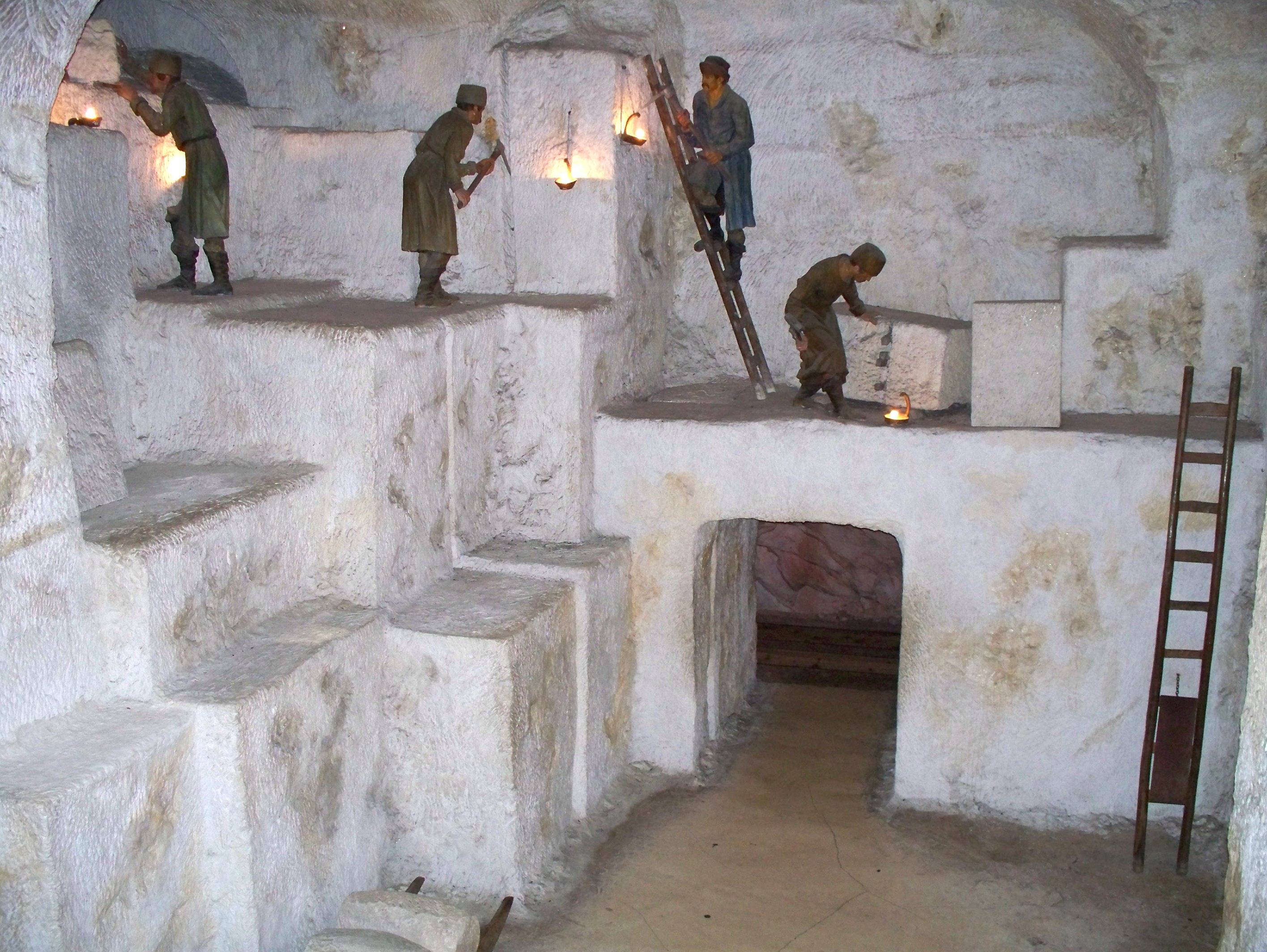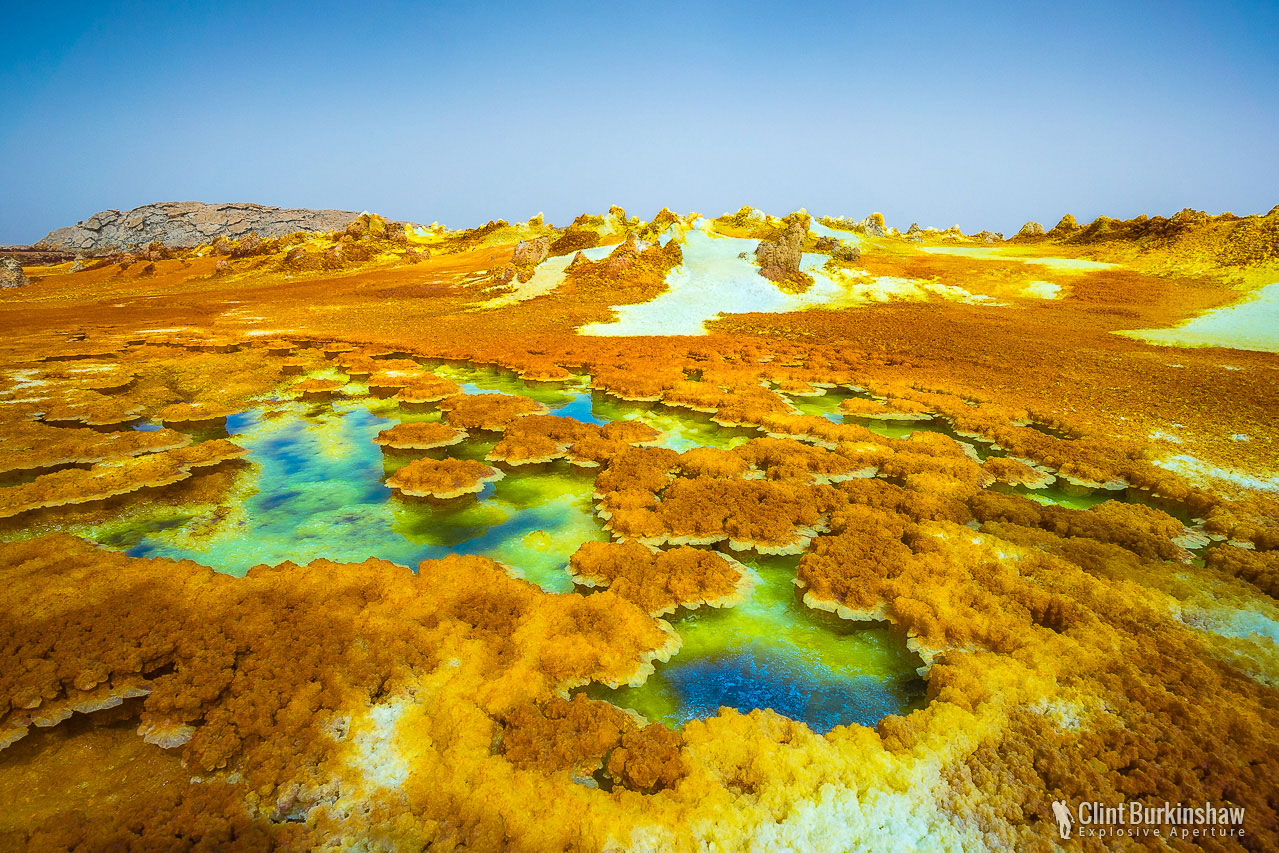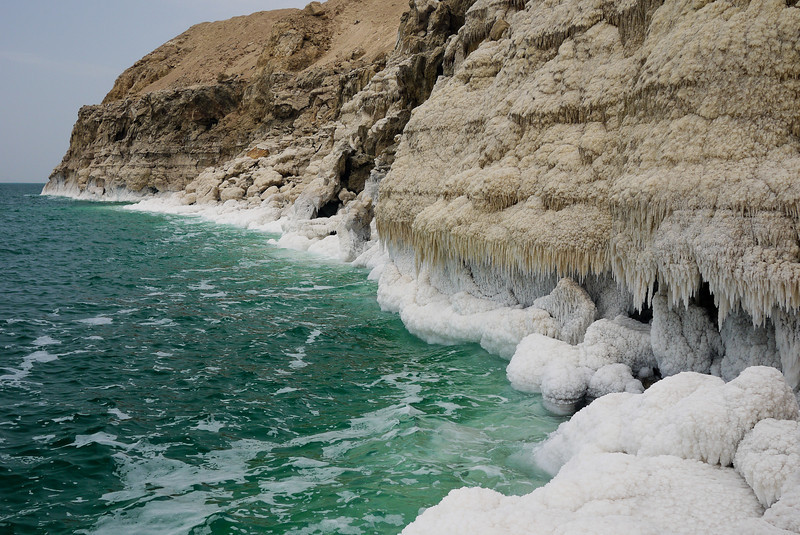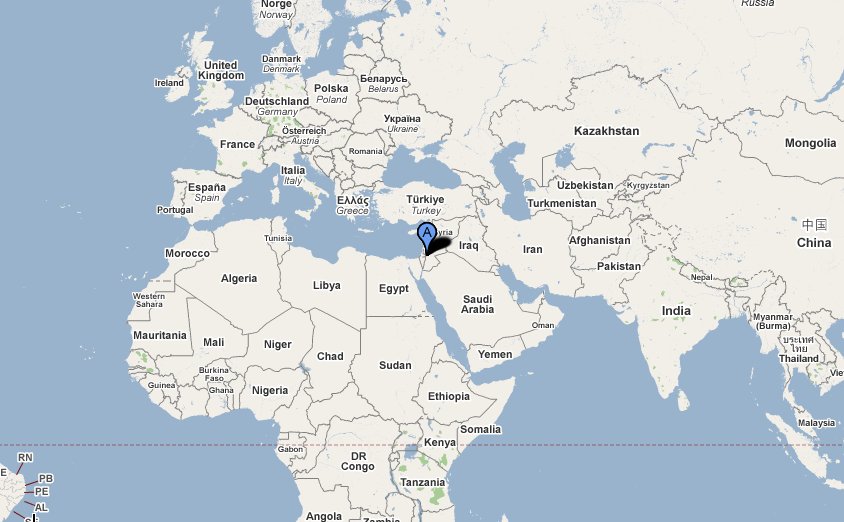Deceptively simple question but actually rich in cool and unexpected outcomes. Let’s start by saying in part you already unknowingly answered your own question: ancient societies would have treated salt as modern ones do. Salt wouldn’t have been precious, and people could have used it in new “wasteful” ways. Before starting anyway be aware that “salt” is a very generic term chemically speaking, but given that you gave a very specific context (an evaporated sea) I take it as meaning evaporite minerals, exactly the kind of stuff you’d find on the bottom of (at least partially) evaporated sea along with “common salt” (sodium chloride). Now let’s see the consequences of a relatively inexpensive and easy exploitation of these evaporite deposits.
MORE WAR, EXPLORATION AND COMMERCE
The most important consequence here would have been IMPROVED FOOD PRESERVING, which is maybe the most appreciated characteristic of common salt. The ability to prevent the growth of bacteria, fungi or other micro-organisms from the early stages of society would have impacted settlement patterns. Being able to conserve food in a cheap and efficient way would allow for new areas to be settled that are not on a natural channel of transport (e.g. a river) that may have otherwise not been settled. New unpopulated areas would be settled earlier and better: exploration can potentially mean laying out new commercial routes or faster colonization by a possible salt empire, especially considering the immense utility of preserved food in feeding a marching army (think of food rations in modern armies). In brief: improved contact (benign or not) between distant civilizations.
MORE AND BIGGER CITIES (but frailer early societies)
The possibility to conserve food for longer periods of time means that goods can travel farther from the farm and selling can occur on a wider scale than a local one. Think of how the invention of the refrigerator made possible to ship perishable food products long distances: same but in a smaller scale. Without food preserving land for agriculture must be necessarily evenly distributed across a populated area, but with cheap means of preservation a fertile small portion of the existing land can produce food for all the others and sell the surplus in a wider area. This mean professional farmers which in turn mean more people that can do other things other than farming to survive (e.g. merchants, smiths, scribes, philosophers, etc.) more cities and more complex societies. All of this actually happened in real world, but with an easier access to salting it will happen earlier.
Without a mean to preserve food your diet and health is affected heavily by the seasons and what could be grown relatively close to your region, but with salting accessible to everyone, population will no longer be restricted by these limitations. As well as changing the goods purchased at the market, the ability to store these foods for extended periods of time will led to an increase in leisure time, because without accessible food preservation, people would have to shop on a daily basis for the supplies needed for their meals. Note that increasing population will led to an increasing demand for agricultural products, which has to be met through expansion, improved technology and inventions or the civilization will collapse under its own population pressure (many evaporites have fertilizing properties, so this can be of some help, we’ll see that later). All this trade and concentration of farming activities can have serious downsides though: harvesting failures, famines and epidemics will travel quicker and will have more significant consequences. Empires, at least at early stages of civilization, will rise and fall abruptly.
Another downside is that all this sodium consumption can led to severe health problems (that can indeed balance excessive population growth though).
FERTILE SOILS?
Somewhat related to the previous topic. I’m aware that nitrates obtained from many evaporites are excellent fertilizers. Gypsum for example was regarded almost as a miraculous fertilizer in the 19th century and even a war was fought over it. I’m no chemist nor agronomist though so I’ll leave this one to experts.
EXCELLENT CHEAP MATERIALS FOR ARCHITECTURE AND ARTS
With all that “salt”, a lot of it can be used for artistic or masonry purposes. For example during late antiquity in Rome and later in medieval Germany many churches had selenite used in for panes in windows as a cheap and beautiful way to replace glass. Gypsum blocks can also be very useful in architecture, being a massive lightweight building material suitable for fire-resistant non-load bearing interior walls. Furthermore gypsum is a key component of plaster which has many uses in architecture and art. Speaking of art, another material commonly found in evaporite deposits is alabaster which is a superb material for sculpture and it was also used in architecture especially in the ancient world before steel was developed, when its relative softness made it much easier to carve than other stones. Also, salt is important in pottery in the process of glazing, and plaster is excellent for casting.


CIVILIZATION HAS POTENTIAL TO EASILY SPREAD NORTH (or up a mountain chain)
All these excellent insulating materials mean that theoretically buildings can be heated more efficiently and civilization can advance more easily in harsher climates, especially if one can afford to melt snow by spreading a lot of salt around.
BUT (speaking of architecture) CONCRETE INVENTION WILL BE somewhat HINDERED
Just a wild guess but in a context in which salt spreading for melting purposes is invented before concrete, the latter has a few chances to be invented and extensively used since salt is reinforced concrete’s worst enemy: we can afford to use it in modern world just because we spend a lot of money in building maintenance but this is still really an unbelievable architectonic nonsense.
CLEANER PEOPLE
Salt is very important in the process of manufacturing soap. To make it obscenely simple soap is made up by fat or tallow and alkaline salts. The salts were the expensive part so soap was a thing for riches. But in this salty utopia soap is a cheap byproduct of animal processing, since a vast variety of salts can be found with relatively little effort.
MINING SALT WILL SPEED UP INDUSTRIAL REVOLUTION
Mining salt was one of the most expensive, laborious and dangerous of operations, due to rapid dehydration caused by constant contact with the salt (both in the mine passages and scattered in the air as salt dust), among other problems borne of accidental excessive sodium intake. While salt is now plentiful, until the Industrial Revolution it was difficult to come by, and salt mining was often done by slave or prison labor. This is obviously not true in a society in which salt is found at surface level and is also nearly infinite. There will probably be professional salt miners and refiners and the industry will be extremely well developed. And there are other substances you can come by while mining salt, such as sulfur, natural gases and even petroleum (trapped under salt slabs by the their impermeable nature). All of them are important substances for technological development and their discovery and exploitation will probably come earlier than in real world because of all this salt mining activity. Obviously all this line of reasoning assumes you can access a 3500 mt deep incandescent basin without consequences, which I anyway doubt (see later, An Impossible Utopia).

EVEN MORE MINING (AND WAR)
Did you know Nitrate minerals are often mined for use in the production of lethal explosives?
AFTERLIFE WOULD NOT BE THE SAME AGAIN
Unlike real world salt would not be considered a “sacred substance” (but I guess that a nearly endless salt desert will be regarded with a certain reverence, same way as sand is not a sacred substance but a desert can be a holy place). I don’t know if this is necessarily true since according to gospels Jesus, who lived in a geographical area plenty of salt, still used salt a metaphor to indicate something very precious (but that can be cultural contamination).
Sure thing, sooner or later primitive societies around this sparkling abyss will discover the important mummification properties of salt, and not unlike how ancient Egyptian did with Natron Valley and the substance which goes by the same name, mummification and body preservation in the afterlife could become an important part of their religious consciousness.

THINGS CAN GO REALLY WRONG
In a certain sense the civilization depicted up to this point is an unbalanced society in which the access to a “modern” comfort such as mass food preservation is unmatched by other solutions to manage population growth such as medicine and fast travel, although the former can supposedly benefit from the salts mining industry (e.g. soap). Primitive societies will be confronted early with the problem of overpopulation, and the ratio between resources and mouths to feed is very reminiscent of the story of a people who loved to build giant stone heads. Factors like increased interaction between different civilizations, war over resources (with explosives!) and population booms due to better diet and better hygiene will all play a role in a fast changing and complex society. And let's not talk about salt tornadoes ravaging the countryside. However all things considered I think that if certain conditions are met it can find its balance. If only this wasn’t…
AN IMPOSSIBLE UTOPIA
The amazing advantages which came from having an endless reserve of useful minerals is almost too incredible to be real. I know this is not part of the question, but since you provided a specific setting I think it's fair to point out its glitches. The real problem with this scenario is that the conditions which are to be met to make this unbelievably vast salt flat possible will at the same time make human colonization impossible. Not only the intolerable climate will hinder any colonization attempt, but there will be no fishing industry and no farming; in short, nothing to use the salt for. Sure, all the other important properties will be of some value, but the impossible climate will render salt mining in this area as expensive and dangerous as in real world, essentially canceling out the advantages.

EDIT: I saw others pointed out the same criticality and you readily linked a scientific paper which directly addresses the topic. I’m amazed at the complexity of climate. And as naive as it may sound, I really didn’t consider the extensive mountain chains which surround the Mediterranean Sea. If I understood correctly the paper, you can legitimately have cool, even humid (!) climate on land above sea level while still having an arid extreme environment below. That’s amazing. I suppose that this is made possible by the fact that this dry pit of hell was not caused by climate but rather by extreme depth. Fascinating, thanks for making me discover this unbelievable phenomenon.







